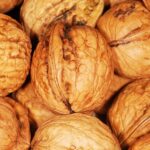Going Protein-Free: A Guide to a Diet Without Protein
Protein is an essential macronutrient that plays a critical role in building and repairing tissues, producing enzymes and hormones, and maintaining a healthy immune system. However, there are many reasons why someone may choose to go protein-free, such as allergies, intolerances, or ethical reasons.
If you’re considering a protein-free diet, here’s a guide to help you navigate this lifestyle change.
What to Avoid
Protein is found in many foods, so going protein-free means avoiding certain foods and ingredients. Here are some common sources of protein that you’ll need to eliminate:
– Meat (beef, pork, chicken, turkey, etc.)
– Fish and seafood
– Eggs
– Dairy products (milk, cheese, yogurt, etc.)
– Beans and legumes (lentils, chickpeas, black beans, etc.)
– Nuts and seeds (almonds, peanuts, sunflower seeds, etc.)
– Grains (wheat, rice, quinoa, etc.)
What to Eat Instead
While it may seem daunting to eliminate so many foods from your diet, there are still plenty of delicious and nutritious options to choose from. Here are some protein-free foods that you can enjoy:
– Fruits and vegetables (all kinds!)
– Whole grains (oats, barley, rye, etc.)
– Potatoes and sweet potatoes
– Soy products (tofu, tempeh, soy milk, etc.)
– Seitan (made from wheat gluten)
– Nutritional yeast (a vegan cheese substitute)
– Plant-based milks (almond, soy, coconut, etc.)
– Herbal teas and other non-protein beverages
How to Ensure You’re Getting Enough Nutrients
When you’re cutting out protein, it’s important to make sure you’re still getting all the nutrients your body needs. Here are some tips for ensuring you’re getting enough:
– Eat a variety of fruits, vegetables, and whole grains to ensure you’re getting enough vitamins and minerals.
– Include soy products or seitan in your diet to ensure you’re getting enough protein.
– Consider taking a multivitamin or other supplements to ensure you’re getting enough nutrients.
– Consult with a registered dietitian to ensure you’re meeting all your nutritional needs.
In Conclusion
Going protein-free can be a challenging lifestyle change, but it’s definitely possible with a little bit of planning and effort. By avoiding certain foods and incorporating protein-free alternatives, you can still enjoy a healthy and delicious diet. Remember to focus on getting a variety of nutrients and consult with a professional if you’re unsure about your nutritional needs.




